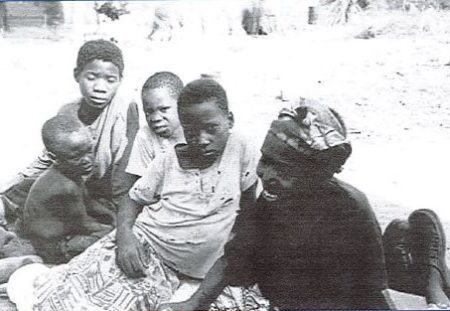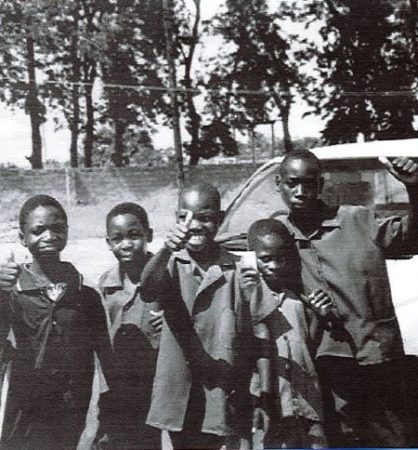Our Trip Down Memory Lane this month brings us to Zambia in Africa. This article was first published in Mercy Live newspaper in June 2004. Unfortunately, Sr. Christine Blake went to her heavenly reward on 5th March, 2020 but Sr. Philomena Horner and Sr. Andrea Hogan are both living back in Ireland. Sr. Philomena is working part time in Counselling and Local Leadership and Sr. Andrea is happily living in community with other Sisters who have returned from Zambia.
Zambia – Founding Stories
Founding, establishing, setting up – is not a one off event. Founding is a journey, and as we know, every journey begins with the first step. The arrival of the Sisters in Zambia in the 1970’s represented that first step, but founding continues to happen there.
In July 2000, a special unit for the education of disabled children opened at Mazabuka Basic School, Zambia. The initiative was funded by Mazabuka Association for the Disabled, a voluntary organisation whose main role is fundraising for the support of disabled people.
Sr. Andrea Hogan co-ordinates the special unit and support services. She liaises with the physiotherapist, local health personnel and family support groups, as well as Mazabuka Basic School, where the unit is located.
 A grandmother and four orphans, one disabled
A grandmother and four orphans, one disabled
In the next parish, Kaleya, Mazabuka, Sr. Christine Blake has been supporting the establishment of a community school for the children of migrant workers, who have drifted from the rural hinterland into Mazabuka, in the hope of finding employment in the large sugar plantation and factory there.
A community survey revealed that hundreds of children where excluded from school, mainly through their families inability to pay school fees in the local state schools. So great was the problem that Christine and her colleague, Mrs Agnes Mulleya, the manager of the new community school, decided to target particular groups of children – children over nine years old who had never been to school, dropouts from grades one and two due to poverty and female children. (‘The girl child’ is the first to be withdrawn from school, while efforts are made to educate boys.)
When Kaleya Community School opened its doors in 2000, it did not have its own building. It began in the community hall where it continues today to juggle for space amid adult activities.
The school began with two unqualified volunteer teachers and sixty children. Today, four years later, there are five teachers and nearly two hundred children. Through the fundraising efforts of a local committee, two teachers have been sponsored to complete teacher training, and the three others have almost completed the course. When all are qualified, they will be eligible for government teachers’ salaries.
Both of these schools play an important part in the lives of their pupils. Not only are they receiving education, but they also receive what is, for many of them, their only meal each day – a bowl of mealie meal supplemented by HEPS – high energy protein supplement.
 Children arriving at the Special Unit – Mazabuka
Children arriving at the Special Unit – Mazabuka
Clearly, the schools at Mazabuka and Kaleya are in the mainstream of the Mercy tradition. Catherine McAuley, who prioritised the education of poor children, would surely support the education of these excluded little ones. In Zambia, as everywhere, Mercy responds to the most immediate needs of the poor.
The church here is gradually becoming African. Many of the clergy are Zambian, and new religious congregations are springing up. One such group, the Holy Spirit Sisters, has about thirty five members, more than half of whom are still in formation. The Congregation was founded in 1971 by Bishop James Corby, an Irish Jesuit, who is now living in retirement in Ireland.
In 2003, the Holy Spirit Sisters Congregational Leader, Sr. Evan, invited the Mercy Sisters to contribute to the formation of the young professed Sisters. Sr. Philomena Horner has been leading reflection, and workshops on community life and the vows. The Holy Spirit Congregation has only been in existence for thirty two years and the young Sisters do not yet have the advantage of the example of elderly role models, such an important concept in Zambian society. It is a privilege for Mercy to be asked to support and encourage the foundation of indigenous religious life in Zambia.
The founding story goes on, and probably will, through twists and turns and permutations yet unknown to us. The pebble has been thrown into the Zambian waters. Where might the ripples go?
Philomena Horner is a Psychotherapist who works on a part time basis in Zambia.
Philomena Horner rsm
Northern Province


